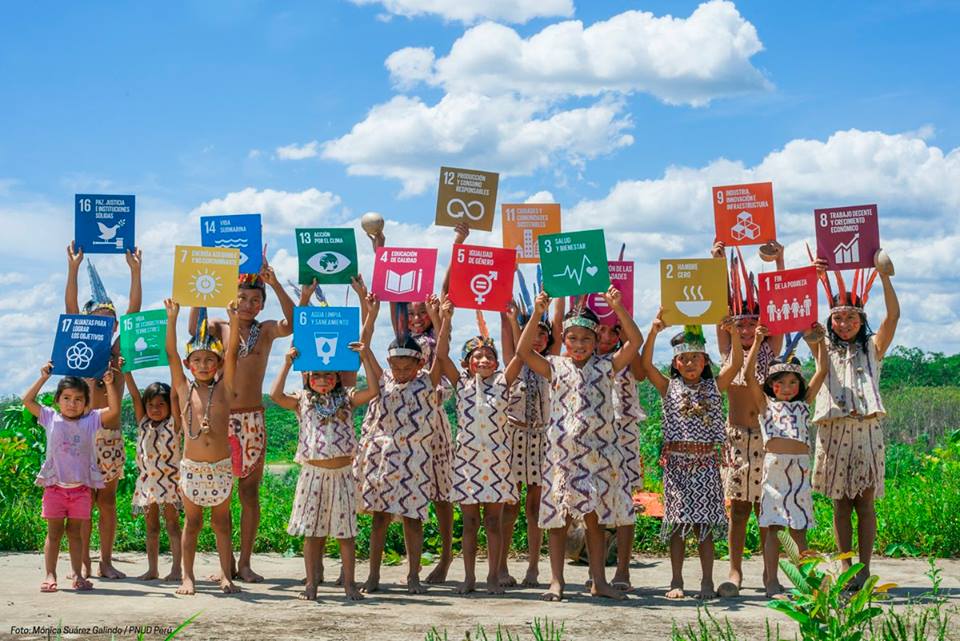How Equal Measures 2030 Plans to Track Progress for Girls and Women

In 2017, Equal Measures 2030 was established in order to connect data and evidence with advocacy and action as a means to drive gender equality and reach the Sustainable Development Goals (SDGs) by 2030.
Equal Measures 2030 – an independent civil society and private sector-led partnership – envisions a world where gender equality is achieved, and every girl and woman counts and is counted.
The partnership, comprised of ARROW, Data2X, Femnet, Bill & Melinda Gates Foundation, IWHC, KPMG, ONE, Plan International and us, Women Deliver, brings together vast experience from different regions, thematic areas, sector and audiences, ensuring that we have a diverse foundation for collaboration as we build this initiative together.
In order to ensure that every girl and woman counts and is counted, Equal Measures 2030 focuses on putting easy-to-use data and evidence into the hands of girls' and women's movements, rights advocates and decision-makers.
We know that for the indicators used to monitor the Sustainable Development Goals (SDGs), otherwise known as the Global Goals, there is often sparse or unreliable data that can inform the situation of girls and women, especially the most disadvantaged. Without the existence and use of timely, relevant and gender-disaggregated data that depicts the true lived realities of girls and women, how are governments meant to effectively make meaningful decisions regarding policies, laws, programming and budgets on gender-related issues?
The aim of the partnership
The partnership began in the form of a gender-data SDG tracker; the initiative quickly grew into a global partnership when it became apparent that global gender data needed to be a priority at all levels. In June 2017, Equal Measures developed its five-year strategic steer, focusing on the following objectives: global data and analysis and national, regional and global-level influencing.
An underlying question that prompted the need and validity for Equal Measures 2030 to exist is our ability to turn the rhetoric of the Global Goals into action that will matter in the daily lives of girls and women. We think we can achieve this in several ways, including:
- Global snapshots and influencing: Using and adding value to a wide range of relevant, timely, and disaggregated data and evidence, we aim to provide a more comprehensive picture of the progress being made towards the Global Goals for girls and women (and that reflects their own perspective).
- National advocacy: In our initial six pilot countries, including Colombia, El Salvador, India, Indonesia, Kenya and Senegal, we plan to take a deeper dive using national data to understand where progress is being made and where it is lagging. We will work with local partners to support data-driven advocacy and build capacity so that evidence becomes action and decision makers are held accountable.
- Bringing data to life: All of our efforts will be underpinned by a communications strategy that brings data to life through human-centered storytelling. We will make data meaningful and understandable using graphics, visualizations and infographics, case studies of innovative initiatives, success stories in data-driven influencing work and promising political action.
Over the next five years, we will launch innovative data and analysis while also growing our existing national level work across our six current countries to include new partner and new countries themselves! This will be unpinned by consistent visibility at the global and regional levels where we will continue to use evidence and innovative research to call for better data and accelerated progress for girls and women.
How Equal Measures 2030 helps Women Deliver meet our mandate
Equal Measures 2030 will give us – the global advocacy community – a wealth of information on the state of the SDGs as they relate to girls and women. “Equal Measures 2030 is an effort to create data with a soul,” says Katja Iversen, Women Deliver President/CEO. “My hope is that it will make technical information accessible to policymakers and advocates, thereby translating into policies and programs that improve the lives of girls and women.”
Women Deliver is thrilled to have an accountability tool that compliments the more formal tracking mechanisms already in place. As an organization that creates the physical and virtual spaces for diverse voices and stakeholders to share solutions, build coalitions, and drive progress. We can ensure that the data Equal Measures 2030 collects is disseminated to the right audience, at the right time, to enact change for girls and women.
Launching the policymaker survey
At the global level, Equal Measures 2030 is producing a series of surveys to track perceptions of progress around gender equality and the Global Goals, identify data gaps and focus on selected priority themes. The first of these surveys was launched during the annual meeting of the United Nations General Assembly.
The survey asks policymakers and opinion leaders in five focus countries about their perceptions of progress on gender equality in their country, whether gender issues get too much or too little attention and what areas need to be prioritized to achieve sustainable development and gender equality.
How to get involved
For more information, subscribe to the bimonthly newsletter or check out Equal Measures 2030's website where you'll find some great blogs and reading material, including:


